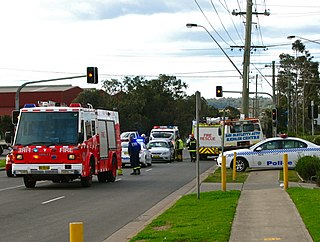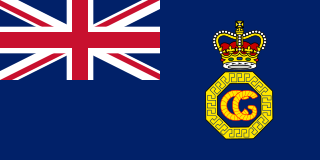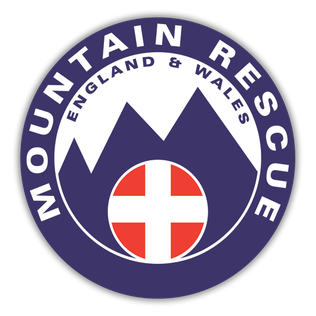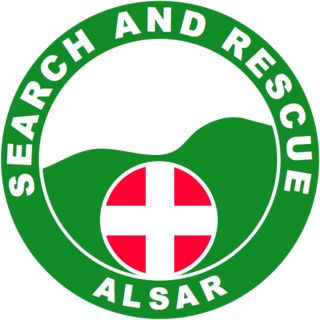
Emergency services and rescue services are organizations that ensure public safety, security, and health by addressing and resolving different emergencies. Some of these agencies exist solely for addressing certain types of emergencies, while others deal with ad hoc emergencies as part of their normal responsibilities. Many of these agencies engage in community awareness and prevention programs to help the public avoid, detect, and report emergencies effectively. Emergency services are often considered first responders, and typically have dedicated emergency vehicles.

Search and rescue (SAR) is the search for and provision of aid to people who are in distress or imminent danger. The general field of search and rescue includes many specialty sub-fields, typically determined by the type of terrain the search is conducted over. These include mountain rescue; ground search and rescue, including the use of search and rescue dogs ; urban search and rescue in cities; combat search and rescue on the battlefield and air-sea rescue over water.

Mountain rescue refers to search and rescue activities that occur in a mountainous environment, although the term is sometimes also used to apply to search and rescue in other wilderness environments. This tends to include mountains with technical rope access issues, snow, avalanches, ice, crevasses, glaciers, alpine environments and high altitudes. The difficult and remote nature of the terrain in which mountain rescue often occurs has resulted in the development of a number of specific pieces of equipment and techniques. Helicopters are often used to quickly extract casualties, and search dogs may be deployed to find a casualty.

A certified first responder is a person who has completed a course and received certification in providing pre-hospital care for medical emergencies. Certified individuals should have received much more instruction than someone who is trained in basic first aid and cardiopulmonary resuscitation (CPR) but they are not necessarily a substitute for more advanced emergency medical care rendered by emergency medical technicians and paramedics. First responders typically provide advanced first aid level care, CPR, and automated external defibrillator (AED) usage. The term "certified first responder" is not to be confused with "first responder", which is a generic term referring to the first medically trained responder to arrive on scene and medically trained telecommunication operators who provide pre-arrival medical instructions as trained Emergency Medical Dispatchers (EMD). Many police officers and firefighters are required to receive training as certified first responders. Advanced medical care is typically provided by EMS, although some police officers and firefighters also train to become emergency medical technicians or paramedics.

His Majesty's Coastguard (HMCG) is the section of the Maritime and Coastguard Agency responsible, through the Secretary of State for Transport to Parliament, for the initiation and co-ordination of all maritime search and rescue (SAR) within the UK Maritime Search and Rescue Region. This includes the mobilisation, organisation and tasking of adequate resources to respond to persons either in distress at sea, or to persons at risk of injury or death on the cliffs or shoreline of the United Kingdom. Since 2015 it has also been responsible for land-based search and rescue helicopter operations.

The National Search and Rescue Program (NSP) is the name given by the Government of Canada to the collective search and rescue (SAR) activities in Canada. Until 2015, the NSP was administered by the National Search and Rescue Secretariat (NSS).

The Disaster Preparedness and Response Team is a non-governmental organisation (NGO) established in Pakistan in November 2005 following the Pakistan Quake. However it was not registered as a voluntary agency until 2006. It is composed of civilian volunteers who give some of their time to train and in major emergencies act as volunteer disaster workers.

Severn Area Rescue Association (SARA) or Severn Rescue is an independent, marine and land based, search and rescue organisation covering the Severn Estuary and upper reaches of the River Severn. SARA is the largest independent lifeboat service in the UK, second only to the RNLI, with 22 operational inshore lifeboats, 20 vehicles and approximately 200 personnel. They receive no funding from the RNLI.
The Ministry of Emergency Management and Climate Readiness (EMCR), formerly Emergency Management BC (EMBC), is a provincial government department in the Canadian province of British Columbia. EMCR works with local governments and other provincial and federal agencies year round, providing coordination and support before, during and after emergencies. EMCR is administered under the B.C. Emergency and Disaster Management Act.

Mountain rescue services in England and Wales operate under the association of Mountain Rescue England and Wales (MREW), formerly called Mountain Rescue Council of England & Wales. The association has a number of regional mountain rescue teams, each of which is an independent charity. The team members are highly trained volunteers who are called out by the police.
Cornwall Search and Rescue Team was a volunteer organisation that provided inland search and rescue cover for the county of Cornwall, England. It has since been replaced by East Cornwall Search & Rescue Team and West Cornwall Search & Rescue Team.

Mounted search and rescue (MSAR) is a specialty within search and rescue (SAR), using horses as search partners and for transportation to search for missing persons. SAR responders on horseback are primarily a search resource, but also can provide off-road logistics support and transportation. Mounted SAR responders can in some terrains move faster on the ground than a human on foot, can transport more equipment, and may be physically less exhausted than a SAR responder performing the same task on foot. Mounted SAR responders typically have longer initial response times than groundpounder SAR resources, due to the time required to pick up trailer, horse(s), and perhaps also water, feed, and equipment.

The Scarborough and Ryedale Mountain Rescue Team provides Search and Rescue services in and around the Scarborough and Ryedale areas of North Yorkshire, England. The team has no formal southern boundary and has carried out searches in the urban fringe areas of the East Riding of Yorkshire
West Mercia Search and Rescue, commonly abbreviated WMSAR, is a voluntary search and rescue organisation which operates in the counties of Shropshire, Herefordshire and Worcestershire. The organisation responds to calls for assistance from any of the emergency services and operates both by day and night.

Berkshire Lowland Search and Rescue (BLSAR) is a registered charitable lowland search and rescue team based in Berkshire, United Kingdom and provides support functions (primarily search and rescue) to Thames Valley Police and the emergency planning departments of various local authorities in Berkshire. In common with most UK SAR teams, BLSAR members are all volunteers.

Association of Lowland Search And Rescue (ALSAR), typically known as Lowland Rescue, is a voluntary organisation in the UK which provides teams who assist the emergency services in the search for missing persons. It is part of the UKSAR operators group appointed by the Department for Transport.

Whitford's Volunteer Sea Rescue Group is a not for profit group based in Perth, Western Australia that provides emergency assistance, safety training, and search and rescue services for water users. It is similar in role to the different Auxiliary Coastguard and Coastwatch organisations in Australia.
Mountain Rescue Committee of Scotland (MRCofS), now known as Scottish Mountain Rescue is the body which represents and coordinates mountain rescue teams in Scotland. It has 27 affiliated mountain rescue teams.

Emergency Response Team Search and Rescue (ERTSAR) is an INSARAG listed international disaster response NGO search and rescue team, with bases in Henley-on-Thames, United Kingdom and Toronto, Canada.
Dorset Search and Rescue (DorSAR) is a Registered Charity who work with Dorset Police, HM Coastguard & other emergency services in the search and recovery of missing persons and other search related incidents.














